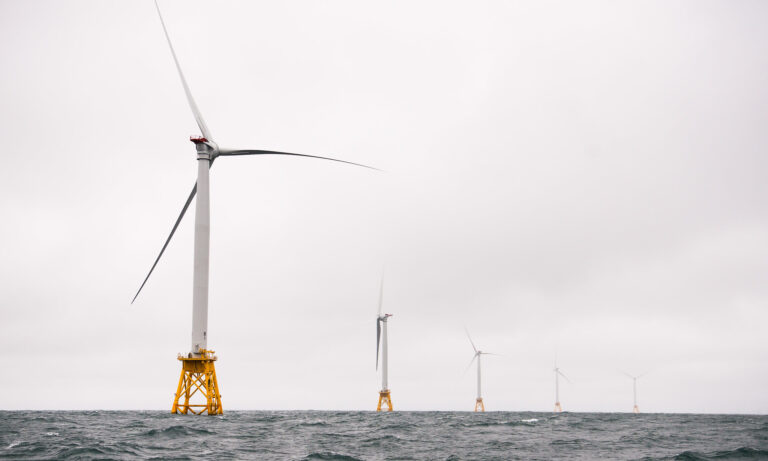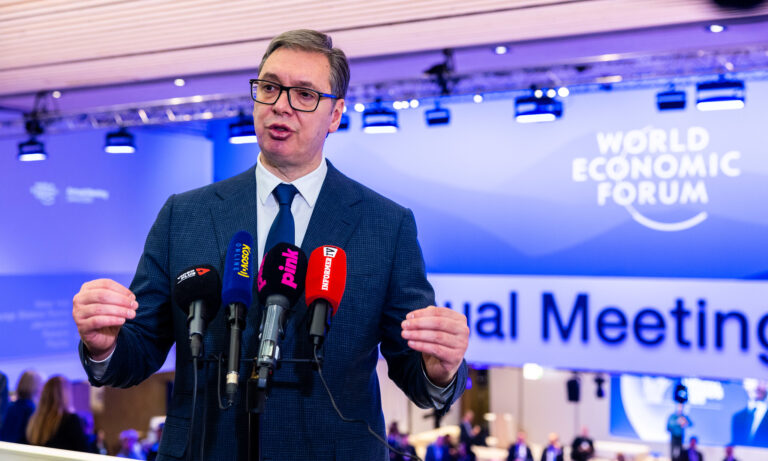China’s Unexpected Impact on the Green Agenda for the Western Balkans

As the Western Balkans countries grapple with the difficulties of the green transition, China presents both challenges and opportunities in meeting their objectives.
The Green Agenda
The Western Balkan region includes countries that are candidates for EU membership and have the obligation to align with the EU policies in order to ensure long-term convergence. That also applies to the area of environment and climate where the Green Agenda for the Western Balkans mirrors the European Green Deal and sets specific goals related to the region’s energy transition. More importantly, it aims to address the environmental concerns in what is considered to be the most polluted region in Europe.
The Green Agenda consists of five pillars: cleaning energy sources and protecting the climate; moving to a circular economy; depolluting air, water, and soil; building sustainable agriculture and food systems; and protecting biodiversity and ecosystems. However, implementation is oftentimes problematic due to the financial, economic, and social costs of the transformation processes. In this context, one factor that could influence the results of the Green Agenda are China’s activities, both in the region and internationally.
China’s Mixed Track Record
China’s presence in the Balkan region has thus far had mixed environmental results. Chinese FDI in highly polluting industries, implemented with very low environmental standards, has been a major reason for concern, especially in Serbia in the cases of the copper and gold mines in Bor acquired by Zijin Mining and Smederevo ironworks operated by Hesteel, but also in Albania in the case of Bankers Petroleum’s oil extraction.
In the past few years, raw wood from the Western Balkan countries, especially oak from Bosnia and Herzegovina but also Serbian beech, has become increasingly popular among Chinese entrepreneurs, to the point that they do not hesitate to circumvent the local rules in order to meet the demand in China, driving prices up for the local population. In turn, the unsustainable exploitation of forests creates a series of secondary environmental issues such as air pollution, soil erosion and flooding.
Moreover, additional thermal power capacity built by Chinese companies in Stanari in Bosnia and Herzegovina and Kostolac in Serbia will likely delay the phasing-out of coal, as the governments seem eager to maximize the return of those sizeable investments. At the same time, China’s 2021 pledge not to invest in dirty energy production abroad has put an end to the plans of the expansion of TPP Tuzla in Bosnia and Herzegovina and TPP Kolubara in Serbia.
China also has a track record of renewable energy projects in the region, starting in the 2000s with the construction of the hydropower plant (HPP) Kozjak in North Macedonia, Mozura windfarm in Montenegro completed in 2019 and more recently the ongoing construction of HPP Dabar and Ivkovic wind farm in Bosnia and Herzegovina. As the space for Chinese investments and projects is shrinking due to geopolitical concerns and rising debt levels, environment and green energy are the few remaining areas where China’s presence in the Western Balkans remains welcome.
The Costs of ‘Going Green’
The Green Agenda is a much-needed commitment that the Western Balkan governments, however, made without having a clear idea about the price tag. As the obligations keep on mounting, the countries seem to be lagging behind in meeting the criteria.
The situation has been further exacerbated by the COVID-19 pandemic and especially the Russian aggression against Ukraine, particularly in the NATO allies, North Macedonia and Montenegro, which had to abruptly wean off their dependence on Russian energy products. The result has been a shortage in electricity production and a spike in prices, leading to inflation and higher costs of basic products and creating headaches for local industries.
These shocks have already contributed to a delay in the energy transition, as some of the governments decided to postpone the closure of their coal-powered plants. Moreover, citizens have become more reluctant to replace their heating with cleaner – and more expensive – energy sources, which put an additional burden on air pollution and forest protection. Namely, wood at present covers 42 percent of the heating demand in the Western Balkans and is expected to increase by an additional 20 percent.
One area of particular note is the transport sector, which is increasingly contributing to air pollution and negatively impacting life quality in the Western Balkans, with the average age of vehicles being 17-18 years, 10 years more than the EU average. Being the European region with the lowest purchasing power, in the past decade, several governments in the region introduced lax conditions for the imports of second-hand vehicles with very low emission standards, mostly from the EU.
For instance, in Serbia, the percentage of second-hand vehicles accounts for 85 percent of the market. The vehicle fleets consist of 70 percent diesel cars in Bosnia and Herzegovina and 50 percent high-emission (Euro 0) cars and buses in North Macedonia. The rising costs of new vehicles in recent years due to the disrupted supply chains, and especially electric vehicles (EVs) EVs which are still unaffordable for the average Western Balkans citizen, risk significantly delaying the gradual replacement of the old vehicle fleet. In such a context, Chinese low-priced EVs could help the region launch the transition towards greener transport, an area where China has positioned itself as a key market player.
Environmental Superpower or Trade Disruptor?
As early as 2010, China’s State Council identified new energy automobiles as one of the seven strategic emerging industries, embarking on an ambitious track towards future Chinese dominance in this sector, supported by a broad range of government activities, including subsidies. EVs and batteries in all their forms have become the new front where China has both an incentive and an advantage to shape global trends, as it has become the world’s biggest producer of EVs and batteries, as well as the consumer of 51 percent of the world’s total EV production.
China has significant reserves or control over the supply chains of the key materials used in the production of batteries, energy and environmental technologies in general, as well as a track record of threats to introduce quotas or outright bans on the exports of critical raw materials.
The last in line was the announcement of restrictions, through licensing, on the exports of gallium and germanium, critical metals used in the chip industry. The mere threat or even a short-term introduction of such measures, like the one against Japan in 2010, following a boat collision dispute, suffice to create market disruptions, encourage speculation, and drive prices up, particularly affecting regions with highly price-sensitive energy transition, including in the Western Balkans.
The Western Balkans as a Part of the Solution?
Renewable energy and environmental protection provide a new opening for Chinese companies to penetrate the Western Balkan region, as they are areas that do not seem to cause major controversies. However, China’s engagement in this area has thus far been driven by its own interests and not by a straightforward policy to support the region’s green transition, hence the patchwork of green projects and blatant environmental degradation.
While China’s activities could, on the one hand, impede the green transition of the Western Balkans, they also could and should serve as a trigger to start considering opportunities for the region to come out stronger amidst unfortunate global developments.
One avenue would be to devise appropriate China policies, channeling the cooperation to areas of particular interest for the region – namely the implementation of the Green Agenda, reducing dependencies, and building resilience to potential global disruptions. Without downplaying the risks associated with China’s upper hand in the green energy industries, a discussion should be launched about how the Western Balkan countries can increase their ownership and gains in related economic activities. This is especially the case as the extraction of much-needed natural resources is already happening in the region and is oftentimes driven by China but does not always benefit the local communities and economies.
At present, Chinese-invested enterprises in Serbia and Albania are the biggest producers of copper in the respective countries, a critical raw material that is in large part exported to China, while the pollution remains in the Western Balkans. Serbia also has lithium reserves, the potential exploitation of which became the subject of controversy and public protests due to environmental concerns. Montenegro’s exports to China consist mostly of bauxite, a mining product whose smelting and refining into aluminum releases gallium, while North Macedonia’s exports consist mostly of ferronickel. On another note, the automotive industry in the region is one of the most promising and competitive industrial sectors, which could be easily upgraded and used to support the EU production of EVs.
Considering joint projects and ventures with the EU in the above-mentioned areas would enable the Western Balkans to use their own natural resources to speed up the economic development and the green transition, but also contribute to the broader European resilience in terms of critical raw materials and supply chain disruptions. Hence, the logical step for both the EU and the Western Balkan countries, who see themselves as next in line for membership, would be to strengthen their partnership and use it to develop joint innovative solutions in favor of making both the Green Agenda and the Green Deal a success.
Written by
Ana Krstinovska
Dr. Ana Krstinovska is a Research Fellow at CHOICE, President of the North Macedonia-based think tank and consultancy ESTIMA and Research Fellow at the Hellenic Foundation for European and Foreign Policy ELIAMEP.


